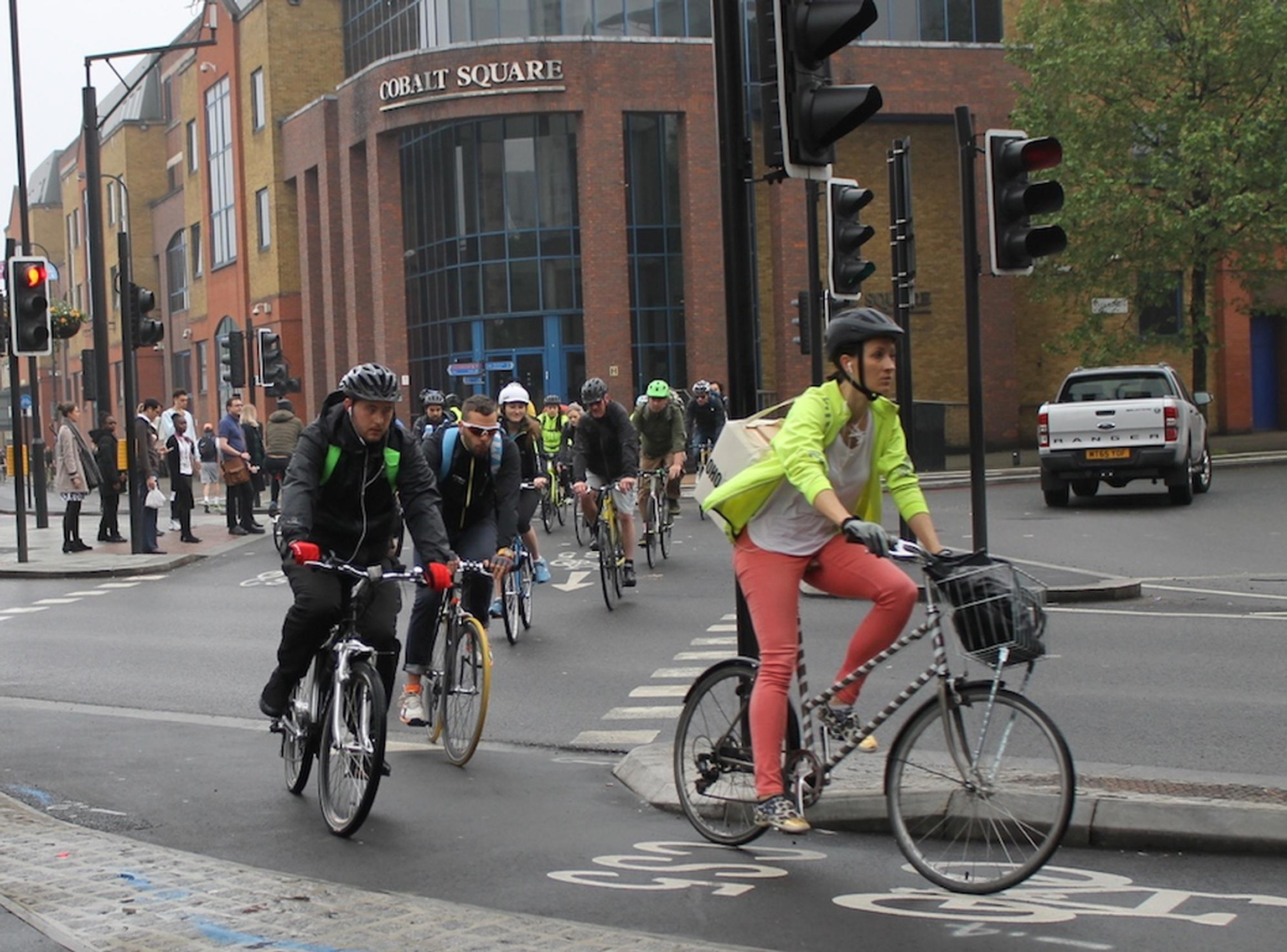

Cycling to work could almost halve the risk of developing cancer and heart disease, according to new research from the University of Glasgow published today.
The research found that commuting by bike was linked with a 45% lower risk of developing cancer and a 46% lower risk of heart disease, compared with a non-active commute. Those who cycled to work had a 41% lower risk of premature death, the study found.
The study analysed data from 263,450 participants at 22 sites across the UK. Participants were asked about their usual mode of commuting to work over a five-year period. From the sample there were 496 deaths relating to heart disease and 1,126 to cancer over the five-year period. These cases were assessed and related to their mode of commuting.
Policies designed to make it easier for people to commute by bike may present major opportunities for public health improvement, the researchers suggest.
Dr Jason Gill, from the Institute of Cardiovascular and Medical Sciences, says: “Cycling all or part of the way to work was associated with substantially lower risk of adverse health outcomes. Those who cycled the full length of their commute had an over 40% lower risk of heart disease, cancer and overall mortality over the five years of follow-up.
“If these associations are causal, these findings suggest that policies designed to make it easier for people to commute by bike, such as cycle lanes, city bike hire, subsidised cycle purchase schemes and increasing provision for cycles on public transport may present major opportunities for public health improvement.”
Meanwhile, walking to work was associated with 27% lower risk of developing heart disease and a 36% lower risk of dying from heart disease, but did not reduce the risk of cancer or premature death overall. The benefits of cycling to work were higher than walking because those on bikes covered longer distances and the intensity of cycling tended to be higher than walking, the study suggests.
Dr Carlos Celis-Morales says: “Walking to work was associated with lower risk of heart disease, but unlike cycling was not associated with a significantly lower risk of cancer or overall death. This may be because walkers commuted shorter distances than cyclists – typically six miles per week, compared with 30 miles per week – and walking is generally a lower intensity of exercise than cycling.”
The paper - ‘Association between active commuting (walking and cycling) and incident cardiovascular disease, cancer and mortality: Prospective cohort study of 264,337 UK Biobank participants’ - is published today in the BMJ.
To find out about cycling to work schemes come to Cycle City Active City

TransportXtra is part of Landor LINKS
© 2026 TransportXtra | Landor LINKS Ltd | All Rights Reserved
Subscriptions, Magazines & Online Access Enquires
[Frequently Asked Questions]
Email: subs.ltt@landor.co.uk | Tel: +44 (0) 20 7091 7959
Shop & Accounts Enquires
Email: accounts@landor.co.uk | Tel: +44 (0) 20 7091 7855
Advertising Sales & Recruitment Enquires
Email: daniel@landor.co.uk | Tel: +44 (0) 20 7091 7861
Events & Conference Enquires
Email: conferences@landor.co.uk | Tel: +44 (0) 20 7091 7865
Press Releases & Editorial Enquires
Email: info@transportxtra.com | Tel: +44 (0) 20 7091 7875
Privacy Policy | Terms and Conditions | Advertise
Web design london by Brainiac Media 2020